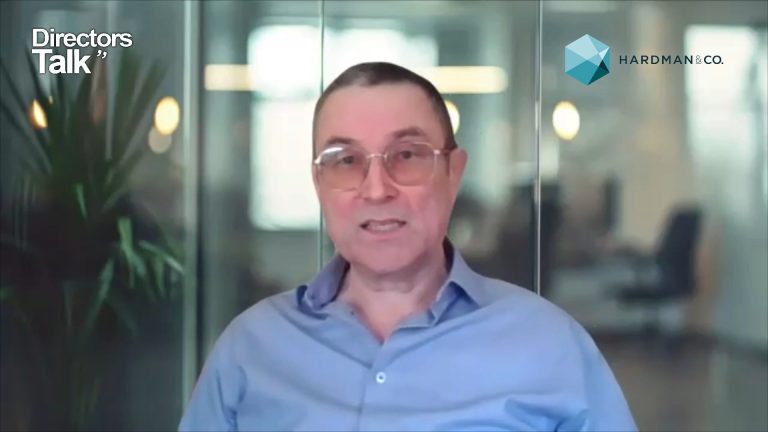Apax Global Alpha Ltd (LON:APAX) is the topic of conversation when Hardman and Co’s Analyst Mark Thomas caught up with DirectorsTalk for an exclusive interview.
Q1: Your recent report sits behind a disclaimer. What can you tell us about that?
A1: It is just the standard disclaimer that many investment companies have. In essence, for regulatory reasons, there are some countries (like the US) where the report should not be read. In the UK, because private equity is not a simple asset class, the report should be looked at only by professional/qualified investors.
Q2: You called your recent piece ‘Making pearls out of oysters’. What can you tell us about it?
A2: Apax Global Alpha’s (AGA) core is the investment in the Apax Private Equity Funds, which, in turn, target the acquisition of private companies, whose performance is then transformed by their global insights and operational expertise.
On average, investee company EBITDA growth accelerates by 15%, and margins improve by 8%. They become more valuable, and their sale relative multiple is typically ca.30% higher than on purchase. Repeating this playbook in four sectors with resilient, secular growth has given investors 2.5x the total returns of the FTSE All-Share index since IPO.
Exit uplifts prove a conservative NAV, and AGA’s strong outperformance through the COVID-19 turbulence proves its resilience. The current discount is well above its historical average and, adjusting for business mix, that of its PE peers.
Q3: So, taking your point about improving performance, what can you tell us about that?
A3: While it is vitally important that they find the right, good-quality companies at attractive prices (and we do not underestimate how hard that task is), in our view, the key to the model is improving businesses once they are owned by the funds. Apax has a specialist team, the “Operational Excellence Practice” (OEP) devoted to this purpose. Its toolkit includes improved technology, marketing, operations and purchasing. Its methods include best-practice transfer, economies of scale, state-of-the-art technology and specialist expertise.
To us, the proof of the pudding is in delivery. During Apax Funds’ ownership, the average investee company revenue growth has been accelerated by 8%, EBITDA growth by 15% and margins by 8%.
Q4: You said their sale relative multiple is typically c.30% higher than on purchase. What can you tell us about that?
A4: By using its sector knowledge and networks to identify companies that are being managed sub-optimally, it is able to buy them at attractive prices, on average 22%-24% below the peer rating. Having upgraded the business and delivered faster growth and improved margins, they can then be sold at a premium (on average 8%-9%), giving an average rating improvement of over 30%. So, it is about identifying companies that are undervalued, but critically ones that can be improved, improving them further, and then selling them for a premium.
Q5: What do Apax, the manager, and Apax Global Alpha, the trust, specifically bring to the party?
A5: As I mentioned earlier, the manager has a focus on four sectors with resilient, secular growth and medium-term NAV performance, which has been market-beating – whatever the economic conditions. It has scale, a global footprint, a focus in the most attractive mid-market, and deep sector expertise and experience. The trust has a unique approach to liquidity with its Derived Investments portfolio, and a dividend yield making it attractive to both capital and income investors.
Q6: What about the risk?
A6: Of course, there are risks. Sentiment to costs, the cycle, valuation, and over-commitment are issues, as they are across the PE-listed market. Residual positions in highly rated stocks, following some very successful IPOs in 2020-21, saw an exposure to underperforming 2022 names. The unique Derived Investments portfolio model of predominantly debt instruments brings liquidity and capital flexibility but complicates the story.










































